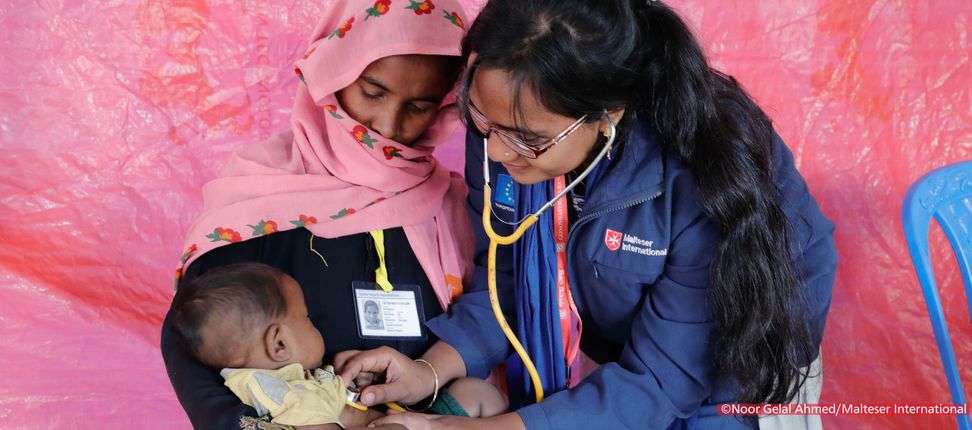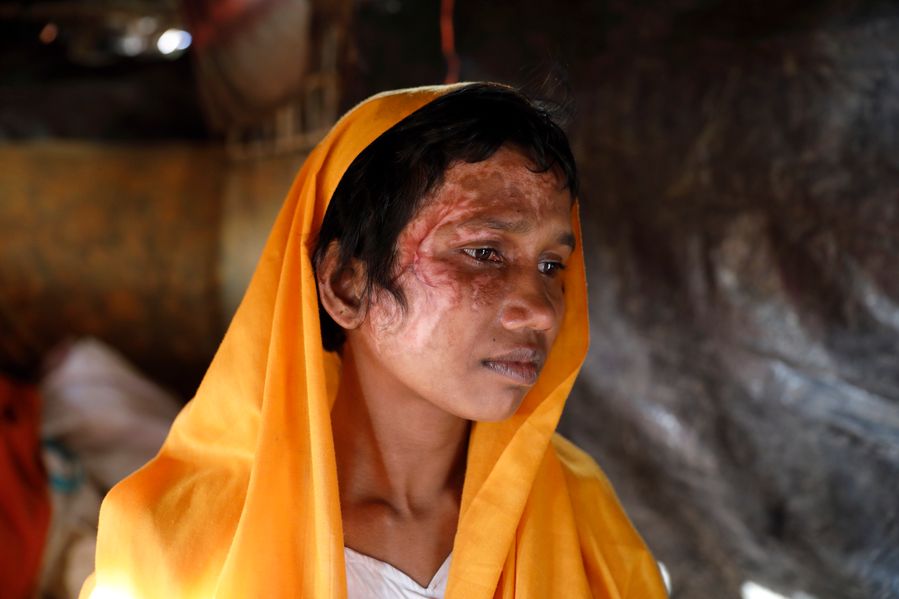
"The worst day of my life"

Rajuma* is only 30 years old, but has endured the most unimaginable horrors. The ethnic Rohingya woman from Myanmar was a survivor of a brutal massacre that occurred in her village, Tula Toli on August 30, 2017. According to various eyewitness accounts, about 300 people were killed, many of them women and children. Rajuma lost everyone in her family, except one of her five children. The pair managed to join hundreds of thousands of other Rohingya who escaped to Bangladesh. The mass exodus became known as the world's fastest growing refugee crisis. According to United Nations Refugee Agency (UNHCR), as of August 15, 2018, over 723,000 Rohingya have fled to Bangladesh since the attacks started on August 25, 2017.
"The 30th of August is the worst day of my life," says Rajuma. "It began in the early morning. The armed men came to the village, and they blocked the exits. They first told us that nothing would happen to us. Now I know that was a lie." The attackers forced the villagers to assemble in the village square, and began to plunder their houses, before finally setting them on fire.
Left to die in a burning hut
Afraid, Rajuma and her family remained in their huts, but safety was not guaranteed there. The men forced their way into their home, shot her husband right before her eyes, then proceeded to kill four of her children – three daughters aged two, five and seven, and an eleven-year old son. Only one of her daughters was able to escape.
After murdering her family members, the attackers set her home on fire, and left her to die inside. Still in shock and afraid, she stayed in the burning house until she was sure that the men were gone. Only then did she venture out of the hut. By this time, half of her body was in flames. With severe burns and her very last strength, she made it to a nearby pond where was saved by a neighbor. Rajuma and her daughter hid themselves in a rice field for four long days before fleeing across the border into Bangladesh.
Fleeing to Bangladesh
Her village was utterly destroyed. Harrowing reports from survivors reveal how families were forcefully separated, husbands from their wives and children from their parents. They tell of brutal executions of men and children – some burnt alive and some others shot dead. Many women, including young girls, were raped several times, and then killed.
Upon her arrival in Bangladesh, Rajuma was treated of her severe burns. Her injuries took about three months to heal, and left deep scars on her body. However, the brutal loss of her family leaves indelible marks on her soul. She escaped with her life, but Rajuma remains severely traumatized, and is regularly haunted by the horrifying memories of her loss.
Malteser International immediately responded to the unprecedented influx of Rohingya refugees in Bangladesh. We are currently operating three health stations in the refugee camps in Cox’s Bazar. We are providing basic medical care, therapeutic feeding for malnourished children and psychosocial support as well as hygiene and sanitation training. We have reached over 60,000 patients with life-saving aid since the beginning of our intervention.
August 25 marks the first anniversary of the beginning of the attacks on the Rohingya and the ensuing crisis. One year later, the camps are still desperately overcrowded and the refugee population is almost entirely reliant on external aid. Conditions in the camp have been worsened by the monsoon season, and more has to be done to avoid further suffering.
Together, we can help women like Rajuma find their way back to regular daily life despite the cruel fate they have suffered.
Donate and support our work in Bangladesh.
*Names have been changed








